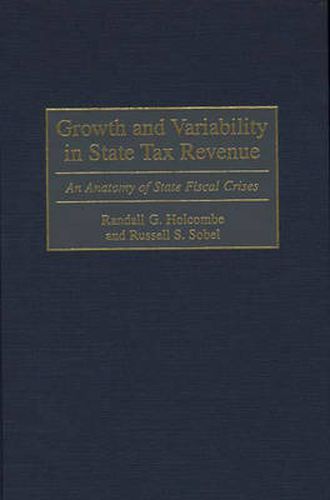Readings Newsletter
Become a Readings Member to make your shopping experience even easier.
Sign in or sign up for free!
You’re not far away from qualifying for FREE standard shipping within Australia
You’ve qualified for FREE standard shipping within Australia
The cart is loading…






During recessions state government fiscal crises are widespread, as states find their revenues inadequate to meet their expenditure demands. This volume shows that state fiscal crises have only one significant cause: revenue downturns associated with recessions. Other analysts have argued that fiscal crises are the result of an interaction of many complex causes, including inadequate tax bases, increasing expenditure demands, and limits placed on state governments by voters. This analysis examines these other factors and shows that while they present significant challenges to state policymakers, they are not the cause of fiscal crises.
The book presents an improved methodology for measuring cyclical variability of revenues and uses this methodology to show that there is no way to restructure state tax systems in order to appreciably reduce the fiscal stress associated with recessions. Fiscal stress can be lessened by setting aside revenues during prosperous years in a rainy day fund, but current rainy day funds are not large enough to eliminate the fiscal stress caused by recessions.
$9.00 standard shipping within Australia
FREE standard shipping within Australia for orders over $100.00
Express & International shipping calculated at checkout
During recessions state government fiscal crises are widespread, as states find their revenues inadequate to meet their expenditure demands. This volume shows that state fiscal crises have only one significant cause: revenue downturns associated with recessions. Other analysts have argued that fiscal crises are the result of an interaction of many complex causes, including inadequate tax bases, increasing expenditure demands, and limits placed on state governments by voters. This analysis examines these other factors and shows that while they present significant challenges to state policymakers, they are not the cause of fiscal crises.
The book presents an improved methodology for measuring cyclical variability of revenues and uses this methodology to show that there is no way to restructure state tax systems in order to appreciably reduce the fiscal stress associated with recessions. Fiscal stress can be lessened by setting aside revenues during prosperous years in a rainy day fund, but current rainy day funds are not large enough to eliminate the fiscal stress caused by recessions.